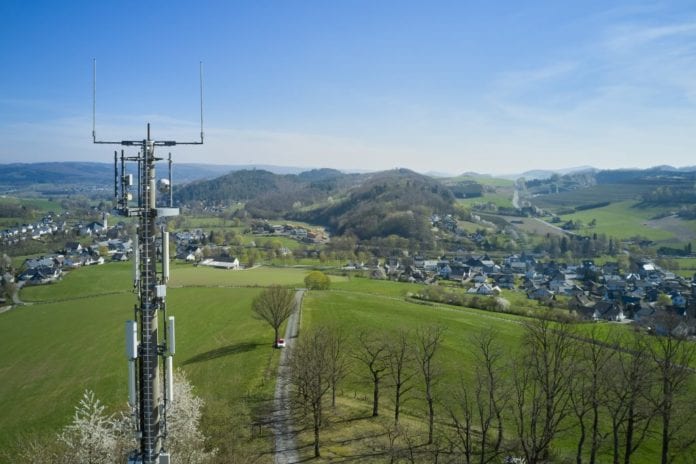Vodafone said it had already deployed 3,000 base stations for the provision of 5G SA services
Vodafone Germany said its 5G network is already providing coverage to 65 million people across the country, representing nearly 80% of Germany’s population.
Since the beginning of the year, Vodafone technicians have commissioned 5,450 5G sites with more than 16,000 additional antennas. In total, Vodafone has already equipped 36,000 antennas with 5G.
The telco also noted that its 5G Standalone network is currently available to nearly 20 million people across Germany. Vodafone previously said that 5G SA technology will reach nationwide coverage by 2025. The German telco had already deployed over 3,000 base stations for the provision of 5G SA services.
Nationwide, more than 227 new base stations for the provision of 5G SA services went on-air in November and December alone, according to the telco.
Last year, Vodafone Germany launched its 5G Standalone (SA) network in partnership with Ericsson, Nokia, Qualcomm and Oppo.
For the 5G expansion, Vodafone is relying on frequencies in the 3.6 GHz, 1.8 GHz and 700 MHz bands in large urban areas, residential areas and suburbs, and rural areas across Germany.
Vodafone initially launched its 5G network in Germany in 2019, using 3.5 GHz frequencies that it acquired from Telefónica in 2018.
Nationwide, Vodafone said it currently supplies around 99% of households with LTE.
“In the past twelve months we have got several hundred thousand people out of the dead zone and connected to the LTE network for the first time. Our technicians have put in a lot of effort because the last percentage points on the coverage map are for network expansion particularly challenging. But they are particularly important for the people who live and work in these regions. According to our calculations, we supply around 99% of households nationwide with LTE and in each of the 16 federal states at least 98% of households with a download speed of 100 Mbits,” said Tanja Richter, head of technology at Vodafone Germany.
Vodafone Germany also said that it has successfully completed a field test with Open RAN (O-RAN) technology in Plauen, in the Saxony region.
The Germany carrier had recently announced that it will carry out comprehensive pilot projects for open 5G radio access networks at several locations in Germany. The first two stations for the operator’s O-RAN technology are located in rural Bavaria. The pilots are scheduled to start in early 2023 and mark the beginning of a broader deployment of O-RAN technology in Vodafone’s European mobile networks.
The pilot projects will use O-RAN hardware and software, which Vodafone successfully tested in the U.K. earlier this year. Samsung is currently supplying mobile technology and software for these O-RAN trials.
“Our pilot project will be one of the first O-RAN systems in Germany that uses open interfaces and is based on hardware and software from multiple providers that are fully interchangeable and interoperable,” Ritcher has said.

